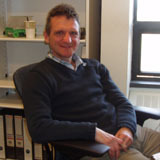
Jon Wakefield
Professor, Statistics and Biostatistics
University of Washington
Tel: 206-543-6774 Box: 354322
![]() website
website
CSDE Committees: Executive Committee Member
CSDE Research Areas:
- Demographic Measurements and Methods
- Health of People and Populations
In the News:


